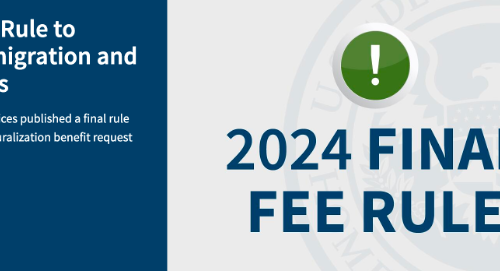
What You Need to Know About the New Law in Florida (FL 1718) that Affects Undocumented Immigrants
On May 9, 2023, Florida Governor Ron DeSantis signed Senate Bill 1718 (FL 1718) into law. This law is an effort to make it harder for undocumented immigrants to live and work in Florida. Here’s a summary of the law, which will take effect on July 1, 2023:
- Transporting Undocumented Individuals into Florida: This law makes it a serious crime to bring someone into Florida if they entered the United States without permission. This crime is called “human smuggling.” If someone is found guilty of this crime, they could go to prison for up to 15 years. However, this law does not make it a crime to live with, help, or transport undocumented individuals within Florida. For example, if you are married to an undocumented immigrant, and you both live in Florida, it is not considered a crime to live with or ride in a car with your spouse.
- Hospitals Collecting Information: Hospitals in Florida that accept Medicaid must ask patients if they are U.S. citizens or legally living in the United States. However, patients can choose not to answer this question. The law also requires hospitals to send reports to the Florida Agency for Health Care Administration every three months. These reports will not have any personal information about patients. Also, the form that these patients fill out must have a caveat that says that the response will not affect patient care, and that the patient’s immigration status will not be reported to immigration authorities.
- Checking Employment Status: Employers must check if new employees are allowed to work in the United States within three days of starting their job. Companies with 25 or more employees must use E-Verify to make sure their new employees are authorized to work. If employers don’t follow these rules, they can be fined or even lose their license to do business. State law enforcement agencies will also be given the authority to request documentation from employers that they complied with the employment verification process of their employees. If it’s found the the employer did not properly go through the employment verification process, they will be given 30 days to fix the issue.
- Driver’s and Professional Licenses: This law restricts access to driver’s licenses and professional licenses (such as a bar license to practice law) for people who cannot prove they are legally living in the United States. It means that if someone has a driver’s license from another state and they are not authorized to be in the U.S., that license will not be valid in Florida. The Florida Department of Highway Safety and Motor Vehicles will keep a list of these invalid licenses on its website.
- Florida’s Role in Immigration Enforcement: this law will also give more power to Florida’s Chief of Domestic Security to coordinate immigration enforcement activities. It means that the state of Florida will work closely with the federal government to enforce immigration laws. State law enforcement agencies will also be required to take DNA samples from people who are in their custody because of an immigration issue.
FL 1718 is a new law in Florida that will make it harder for undocumented individuals to live and work in the state. It has rules about transporting people, collecting information at hospitals, checking employment status, and getting licenses. While the full impact of this law is not yet known, it is expected to have a big effect on Florida’s economy.




